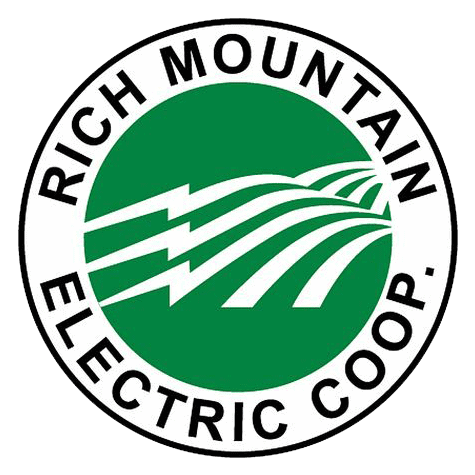How to read your Rich Mountain Electric bill
Your Rich Mountain bill should arrive at about the same time each month. The bill will clearly show your electric usage, measured in kilowatt-hours, as well as the amount you owe. The Cooperative gauges your usage by visiting your house once each month and reading your electric meter. In some special instances from time to time, reading your meter may not be feasible. If this is the case, your usage will be estimated based on past usage levels and your bill will have wording to that effect.

1. Send payment to this address.
2. Rate Class
3. Meter Number
4. Account Number
5. Meter Reading Dates, and Number of Service Days
6. Meter Readings
7. Kilowatt Hours Used
8. Itemized Billing Charges and Credits
9. Last Day to Pay Net Bill, Gross Bill Applies After This Date
10. Amount of Late Payment Charge
11. Cooperative's Stub Portion of Bill
12. Mailing Date of Bill
The "Base Rate" or "Basic Service" Charge
Rich Mountain Electric Cooperative's basic charge represents your fixed monthly costs consisting of rights-of-way, power line, and other maintenance and operative costs, including property taxes and other expenses associated with service to a member's location. These costs occur regardless of the amount of energy purchased or sold. The Public Service Commission (PSC) generally requires that such "customer related costs" costs be identified and billed separately from the "energy-related" and "capacity costs".
Previously, "customer-related" costs were averaged in the kWh charge. During the 1970's energy shortage, utility companies were asked to restructure their consumer rates resulting in a change from "minimum bill" to "basic charge".
Without this fixed charge, the kWh rate would be higher for all energy, and those using more kWh per month would be subsidizing those using less.
Basic charges among utilities may vary since there are different ideas on how to allocate fixed costs, but each has a basic or fixed charge.
